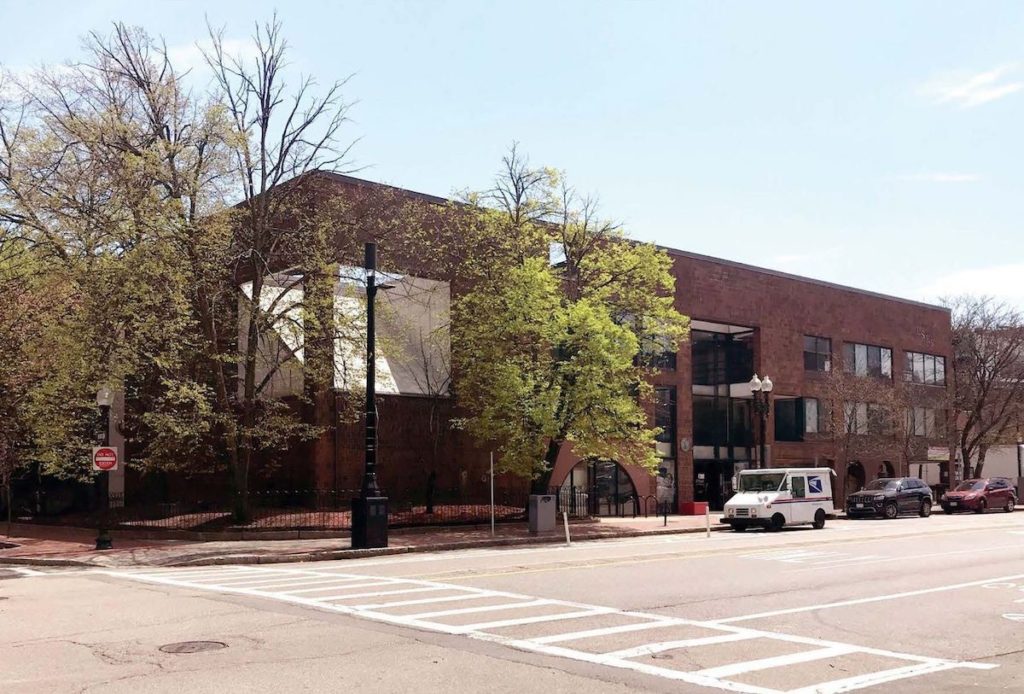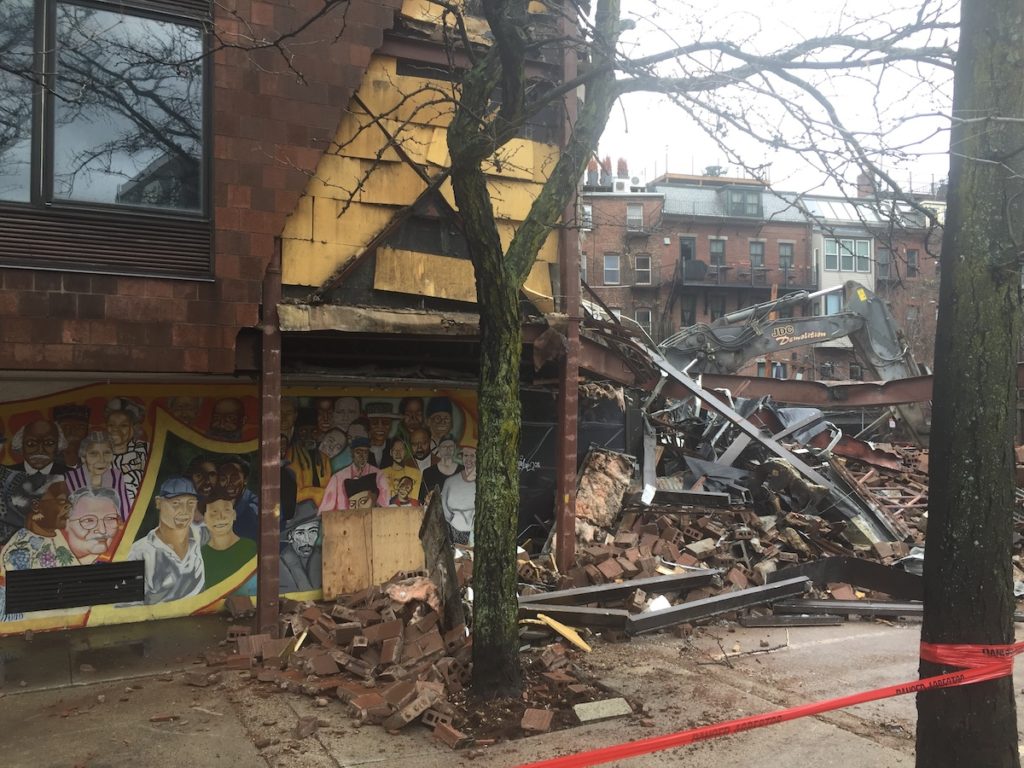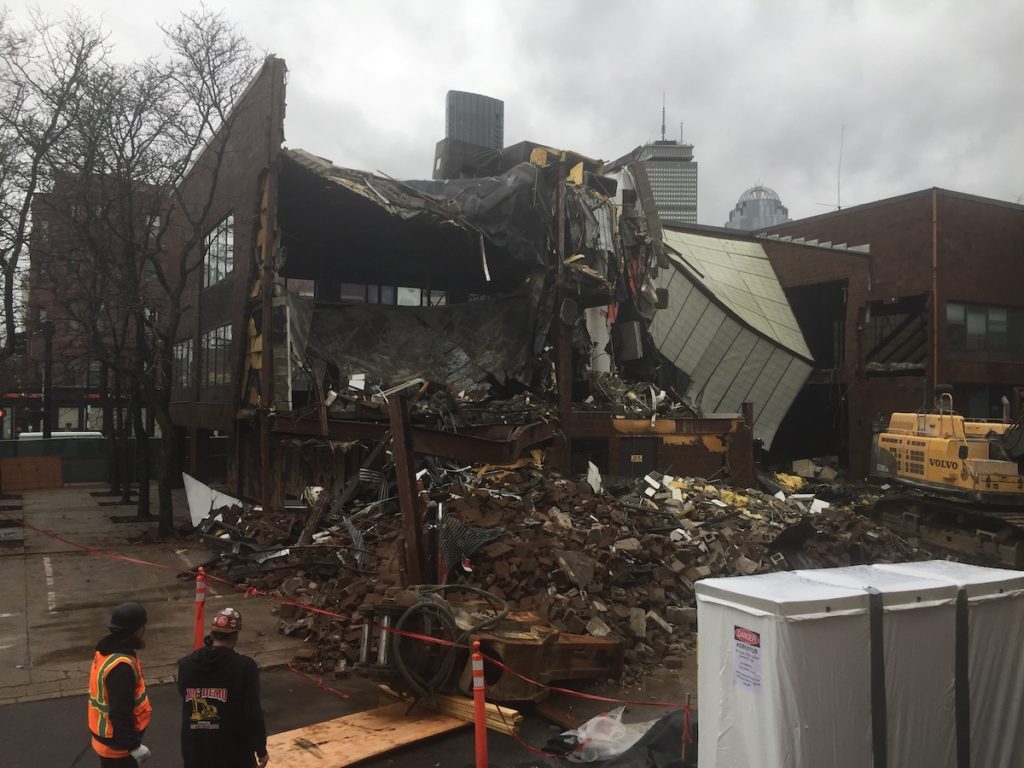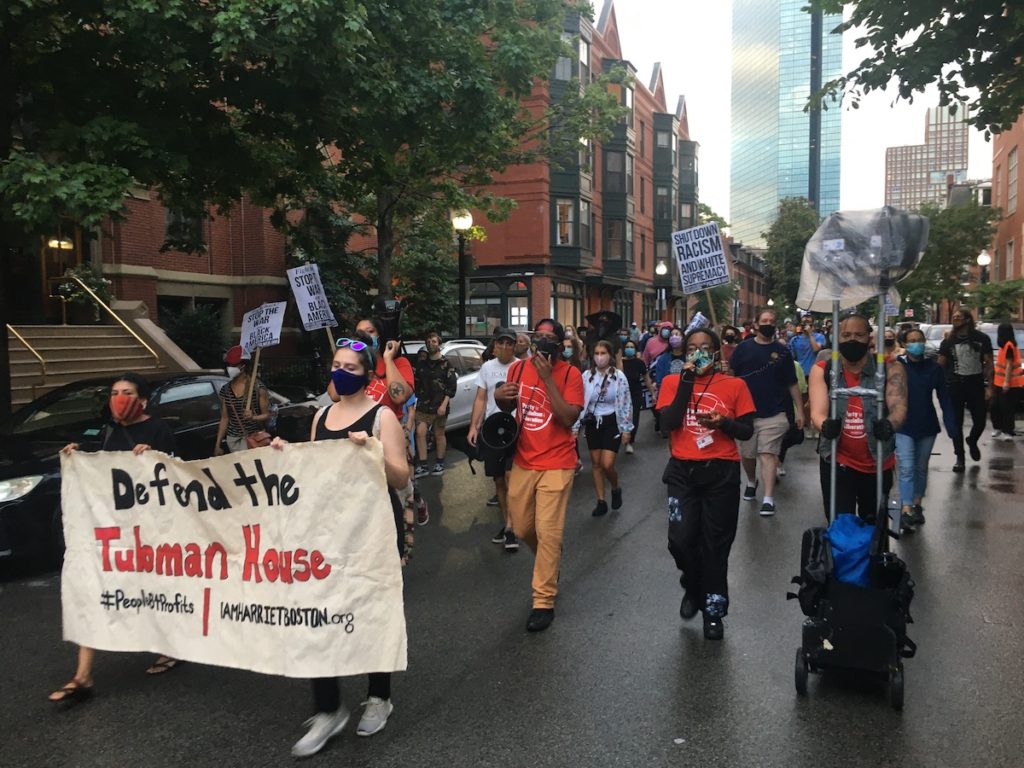A mound of bricks and twisted steel are all that remains of the Harriet Tubman House. The historic community hub for Black and working-class Bostonians in the South End neighborhood was demolished in November to make way for luxury condos.
The Harriet Tubman House was a fixture in Black Boston since 1908 and in its most recent location since 1975. In 1904, six Black women — including one of Tubman’s friends Julia O. Henson — rented the first Harriet Tubman House at 37 Holyoke Street in the South End to provide shelter to other Black women who recently moved from the South.
Since then the Tubman House served as a refuge for its community by offering services such as job training programs, adult education, senior programs, child care, art exhibitions and much more. Every day, neighbors gathered in the lobby to socialize, read the news and relax in a safe, welcoming environment. The Harriet Tubman House also housed six nonprofits that served the local community — all of which are now displaced from the neighborhood due to the sale and demolition.

Urban renewal or urban “removal?”
The Harriet Tubman House sale by nonprofit United South End Settlements took place within the context of a rapidly gentrifying South End. In 1980, even after the damage of Urban Renewal, 39 percent of South End residents were Black. By 2015, that figure had decreased to 12 percent.
The administration that assumed control of USES in 2015 allowed the House to deteriorate to later justify its sale to luxury condo developer New Boston Ventures for $13.25 million.
USES refused to fundraise for the House — even eliminating income from Zipcar and an ATM branch — and cut all programs for adults, including seniors, while spending down their endowment and generously compensating their leadership team. USES also hired a public relations firm to spin and exaggerate their self-inflicted plight. An examination of tax records revealed that the organization had misrepresented its financial status.

USES could have sold the House to another nonprofit to keep this irreplaceable hub in community hands, and in fact received bids that would have both accomplished that aim and earned more money than the deal with the luxury condo developer.
Instead, they chose New Boston Ventures after it made many contributions to elected officials and so-called community leaders. After receiving the contributions, these officials either remained silent in the face of vociferous protest or endorsed the condo plans. New Boston Ventures’ Chief of Operations became Boston Mayor Marty Walsh’s Chief of Staff in March 2020, after making contributions to him.
Affordable for who?
While USES and New Boston Ventures boast that the development project will generously contain 17 percent “affordable” housing, the cheapest of those units, a 745 square foot one-bedroom, would sell for $186,400. Considering that the median net worth of Black families in Boston is $8.00, it is clear this project will only accelerate the South End’s gentrification.
If luxury developments continue to dominate in the neighborhood, there may no longer be a working class community for non-profits like USES to pretend to serve.

On December 12, 2019, the Boston Planning and Development Agency lifted their own Urban Renewal restrictions on the property to permit luxury housing on site. BPDA will receive 4 percent of each condo sale and 2 percent of re-sales. Clearly the BPDA along with USES and the city government were looking out for their own interests, not those of community members, whose fierce opposition took the form of street protests and a 60,000-signature-strong online petition.
The community fights back
The community-wide struggle began in 2019 with the Black-women led I Am Harriet coalition, which members of the Party for Socialism and Liberation Boston branch joined that summer. The coalition organized a number of demonstrations and rallies in hopes to build a mass movement strong enough to save the House. One coalition member and lifelong South End resident told Liberation News, “The greed and deception of USES, the city, and developers stole this community’s last piece of Black history.”

It is a tragedy that capitalism’s rapacious profit motive destroyed the Harriet Tubman House, whose inviting facade adorned with an inspiring mural will no longer grace the prominent corner of Massachusetts and Columbus Avenue. The city government and developers will continue their path of destruction across the historically Black Roxbury neighborhood, and we the people must continue to rise up and shout, “Enough is enough! People over profits!”




